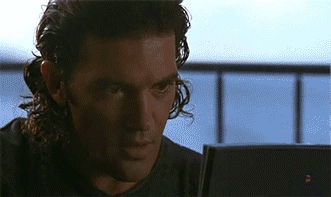Okay, I thought you were saying religion’s only downside is when it has power, and I was just pointing out that it’s not only religious abuse of power that motivates many anti-religious atheists. Thank you for clarifying and sorry I misread your comment.
Well, I do know religious believers who are my moral betters. But I think they are in spite of have a less optimal foundation, not because of it. It just seems to me that operating from a position of fidelity to reality is advantageous over not.
I’d agree with that wholeheartedly. I don’t think my ontological system is perfect by any means. I’m not even sure my epistemological method for improving and refining it is ideal. And in other ways unrelated to religion, a religious believer’s moral foundation can certainly be superior to that of an atheist. But I still regard the belief in what I don’t believe exists to be a liability, not an asset.
I myself, being imperfect, undoubtedly hold beliefs that I don’t know are wrong but nonetheless are. And those would be my liabilities. But my goal in life is to doubt and question all my beliefs, to subject every one of them to the best tests of evidence I can given my imperfect knowledge and access to data. Since I can’t take the time to test all of them (for example, the old philosophical problem that most people have never seen the Forbidden City with their own eyes but still believe it exists), and since I’m an imperfect tester who will make errors, I know I’ll never be totally certain even in the beliefs I have access to, to say nothing of the much larger (possibly infinite) amount of knowledge I’m not even aware of.
The key difference between me and someone who believes in a Higher Power is that I don’t hold any beliefs that I would still hold if in searching for empirical evidence to support them, I found none. Since there is no empirical evidence of a Higher Power, believers of such necessarily do have beliefs for which they do not require even the possibility of empirical evidence.
That is true. And I’ll be the first to say that religion is not all bad. Rather my position is that, in the balance, the history of the world would have been better if we were more rational beings that didn’t create things like religion. At the most I’ll say I’m weakly condemning religion as a whole. When someone does something good because of religious belief, I neither want to nor can I condemn their specific actions. But since I don’t believe in a Higher Power, I consider them to have been capable of those good things without that faith, because ultimately if it did not come from a Higher Power, then it came from something else within them and/or their world that could still motivate their goodness without that belief. And as a matter of statistics, both in their own life and in the course of history, it makes sense to me that all the good people would themselves be even more of an effective force for good without what I consider illusions.
I agree with that. But at the same time, just as I would never expect them to censor what they believe around me, I’m outspoken about my atheism, my reasons for it and my reasons why I think it’s the best system. I like friendly disagreements. Whether or not anyone changes their beliefs, things can be learned. For example, your replies back to me have encouraged me to more carefully evaluate my attitudes toward religious belief and how I communicate that to believers. I’m sure I’m still not doing it perfectly, but it’s a chance to improve which is a wonderful thing and something for which I’m grateful to you and others who engage me on difficult subjects we don’t entirely agree on.
True. And being human, I’m altogether susceptible to the sin of hubris, an altogether human mistake. I try not to find others wanting. But sometimes I can lose sight of the forest for the trees.
Your comments have always come across to me and clear and insightful. Thank you for being patient.
[Edited for my bajillion grammar mistakes ![]() ]
]


